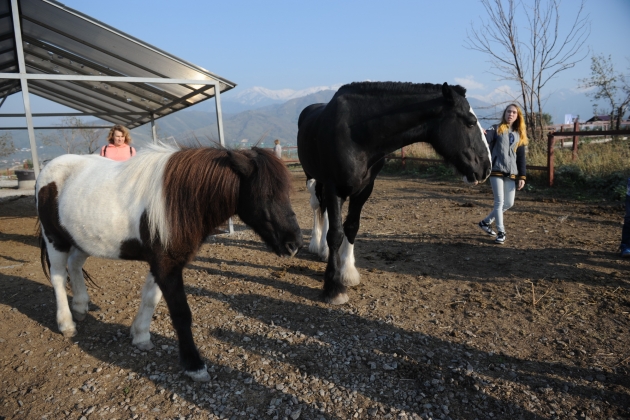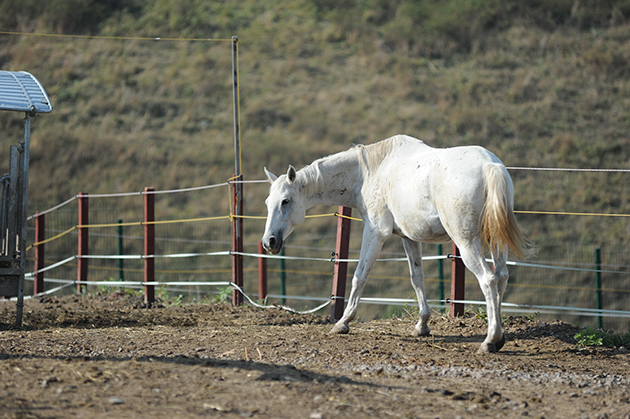ASTANA – Hippotherapy, or equine-assisted therapy, involves activities with horses to promote physical, occupational and emotional growth in individuals with special needs. Training specialists is an expensive business and requires the government funding provided in many countries. The problem in Kazakhstan is that one stable is not able to work with all the patients and the project needs state support, according to Chamberlain Equestrian Club owner Marina Bukanova.
A small number of people have gone abroad to receive the necessary education and bring the methods back to Kazakhstan. There are also a small number of horse owners who pay attention to the practise, reported Kapital.kz.
Approximately 20-25 children with special needs are constantly undergoing therapy at Chamberlain. About 100 children are engaged in therapy each year.
Three specialists, including a paediatrician-rehabilitator, hippotherapy instructor and specialist who works with the horse, are needed for classes with each child.
“There are many hippotherapy centres for children and adults in the world. For example, in France there is a hippotherapy centre that provides rehabilitation for soldiers who participated in military action. We should at least create a centre of hippotherapy for the children with the support of the state,” said Bukanova.
After communicating with the horse, some people acquire a passion for the animals, while others just have a desire to return and stay close to them. Scientists have studied this phenomenon, which is based on physiology. A horse’s heart sounds in unison with the heart of a healthy person, but is five to ten times larger than a human one. When a person enters the magnetic field on the animal’s shoulder, the individual calms down and blood pressure is normalised.
Chamberlain has created all the conditions for horses to live as they would in the wild, said Bukanova. The animals do not stand in one place moving from trough to trough, have sand baths and walk on different types of soil. The conditions, known as paddock paradise, ensure the horses have healthy hooves and eliminate the need for horseshoes.
The club also applies soft techniques. Time, patience and money are needed to raise a horse without aggression and psychological trauma, the main reasons why the practice is not yet prevalent. The animals have different natures and adapt in various ways depending on their temper, but are usually aware that the person can be trusted within a year.
“Many stables around the world use soft methods and a natural attitude toward horses, but this is not widespread. I believe our country will come to this,” said Bukanova.
She noted the benefits of equine-assisted therapy.
“Hippotherapy does not cure, it helps to cure,” she said. “It helps autistic children. They do not speak because they have problems with vocal apparatus. They simply have no need to communicate with others. They feel comfortable around the animals. They begin to talk to them and then they start to socialise with other children, too.”
The club has a system for choosing its animals, noted head coach Maria Sytnikova.
“The selection of horses for hippotherapy is very strict, as not every horse is suitable for healing. They should not have the slightest lameness or arrhythmia. Unfortunately, we often see an inappropriate level in the health of horses who are engaged in hippotherapy,” she said.
Calm horses, often phlegmatic animals which have not had improper training or a negative experience with communication, are perfect for working with children.
The equines are specially trained for hippotherapy.
“It takes a long time to work with horses to ensure that they adequately respond to inappropriate children’s behaviour, for example, if a child has sharp cries or has a seizure. Horses need to respond adequately. And, of course, they have to give positive energy,” said Sytnikova.



